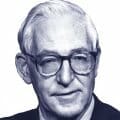News > Blog
In Memoriam: Samuel E. Bunker, former Chairman of Global Communities/CHF Board
Published 06/15/2016 by Global Communities

In Memoriam: Samuel E. Bunker, former Chairman of Global Communities/CHF International Board
Originally published on the ECT.COOP website
By Michael W. Kahn | ECT Staff Writer
Samuel E Bunker
Samuel E. Bunker, a member of the Cooperative Hall of Fame who led NRECA’s International Programs Division for more than a decade, died June 10. He was 88.
Bunker was at the helm of the IPD from 1978 until his retirement in 1990, overseeing a number of milestones, including initiation of a national electrification program in Bangladesh that began in 1978. To date it has brought modern, affordable electric service to more than 50 million people.
He also oversaw the beginning of a $25 million Central American initiative to introduce innovative approaches to rural electrification, as well as the creation of the NRECA International Foundation.
Born in the New York City suburb of Yonkers, N.Y., Bunker held degrees from Yale University and Harvard University. His father, Ellsworth, was a diplomat, who at various times served as the U.S. ambassador to Argentina, Italy, India and South Vietnam.
Prior to coming to NRECA, Bunker spent 15 years at the Ford Foundation in various capacities, including stints in the Middle East and India.
In 1990, Bunker was inducted into the Cooperative Hall of Fame, which noted his “commitment to the cooperative movement and his sincere personal desire to help poor, rural populations.” Among many endeavors, he had chaired the Cooperative Housing Foundation (now Global Communities), was a director of Volunteers in Overseas Cooperative Assistance and was a long-time member of the CARE board.
“Sam was the genuine article—kind, thoughtful, personable and an individual with a deep passion for helping people,” said Martin Lowery, NRECA executive vice president of member and association relations, and a colleague of Bunker.
“He understood the global development challenge as well as anyone and was an inspiration to all,” Lowery added. “His legacy lives on in the many organizations, countries, villages and people he touched.”
Bunker is survived by his wife Ginny.





